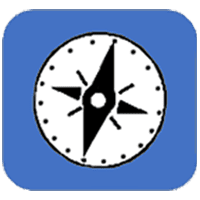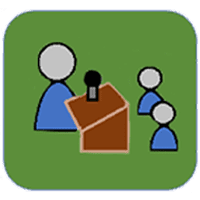Field Tour / Workshop
Workshop recordings.
Description: The workshop aims to bring together experts working in seed-based restoration around the world to discuss key elements of the native seed supply chain. This event is organized in conjunction with INSR, BLM, SER, TNC, and with assistance from the Great Basin Fire Science Exchange.
This workshop has been approved for continuing education credits through the Society for Ecological Restoration.
View workshop recording.
Read workshop summary.
Workshop purpose: Identify fire science and management needs and discuss tools and approaches to natural resource assessments and adaptation strategies for fire dynamics in future climates in Southwest (DOI Regions 8 & 10 [CA, NV, AZ]) bioregions.
Take-Aways:
Provide awareness of tools needed for decision-making in an uncertain future
Generate a list of new science actions to meet fire needs for practitioners/planners in future, non-analog landscapes and communities
Suggest how we might address and accomplish these identified needs going forward
Exchange Information
Make connections
This four-hour, virtual Summit was an abbreviated, rescheduled version of ‘Building Bridges and Solutions: Partners in Facing Fire-Science Challenges’ that was cancelled in April due to COVID-19. We assembled scientists and fire practitioners/leaders in an interagency effort to identify fire science and management needs and to discuss decision-making tools and approaches that address resource assessments and adaptation strategies for fire dynamics in future climates in the Southwest (Department of Interior [DOI] Regions 8 and 10 [CA, NV, AZ]). This overriding goal threaded together the Summit’s talks, Q&A, and break-out sessions. Speakers from various agencies, institutes, and academia focused on fire management and planning in future non-analog landscapes and climate-fire-ecosystem impact relationships in western forest (e.g., mixed-conifer, subalpine), desert (hot and cold, grassland, pinyon-juniper, sage-steppe), and Mediterranean/chaparral bioregions. Syntheses from talks, Mentimeter-conducted discussions, and break-out groups on management and actionable-science needs will be summarized in a white paper and posted on the Southwest, Great Basin, and California Fire Science Exchange websites. Let’s work together to address fire science and management in an uncertain future!
We are hosting several workshops, symposia as part of the 2021 Society for Range Management annual meeting. **You do not need to be registered for the SRM meeting to attend.
Strategic Targeted Grazing to Reduce Fine Fuels (Feb 16, 1:30-4:00 PST/2:30-5:00 MST)
The Strategic Grazing symposium was held in conjunction with the Society for Range Management Virtual Meeting. It provides updates on the Idaho and Nevada strategic grazing demonstration areas. Symposium recording.
Sagebrush Ecosystem Recovery 10+ Yrs after Treatments (Feb 17, 1:30-3:30 PST/2:30-4:30 MST)
The Sagebrush Ecosystem symposium provides Sagebrush Steppe Treatment Evaluation Project (SageSTEP) updates. It was held in conjunction with the Society for Range Management Virtual Meeting. It shares what’s been learned after at least 10 years post-treatment. Symposium recording.
Big Sagebrush Restoration Status (Feb 18, 1:30-4:00 PST/2:30-5:00 MST)
The Big Sagebrush symposium was held in conjunction with the Society for Range Management Virtual Meeting. It was brought to you by the Rangeland Equipment and Technology Council (RTEC). Symposium recording.
The Advanced Burn Boss Workshop and Fire Science Symposium (click “Log in as Guest” in the event portal) is a combined virtual event that will provide targeted training for burn bosses: RT300, IFTDSS, and smoke modeling, as well as interactive presentations for a wide audience that bridge research and practice using the three pillars of the Cohesive Strategy: Resilient Ecosystems, Fire Adapted Communities, and Safe and Effective Wildfire Response.
The Big Sagebrush symposium will be held in conjunction with the Society for Range Management Virtual Meeting. It is brought to you by the Rangeland Equipment and Technology Council (RTEC).
**You do not need to be registered for the SRM meeting to join.
The Sagebrush Ecosystem Recovery symposium will provide Sagebrush Steppe Treatment Evaluation Project (SageSTEP) updates. It will be held in conjunction with the Society for Range Management Virtual Meeting. It will share what’s been learned after at least 10 years post-treatment. **You do not need to be registered for the SRM meeting to join.
The Strategic Grazing symposium was held in conjunction with the Society for Range Management Virtual Meeting. It provides updates on the Idaho and Nevada strategic grazing demonstration areas.
**You do not need to be registered for the SRM meeting to join.
Invasive annual grasses threaten millions of acres of sagebrush rangelands across the west. This two day workshop hosted by the Harney County Wildfire Collaborative and Oregon SageCon Partnership will explore the barriers and opportunities for addressing invasive annual grasses in Oregon and beyond the state. In this workshop some of the most pressing issues related to invasive annual grass management will be discussed, including the connection between invasive annual grasses and wildfire and what can be done to better address this threat.
VIRTUAL Workshop Dates & Agenda
Monday, December 14, 12:30-4:30pm: Defend the Core—Keeping the Good, Good
- Hard truths of invasive annual grasses
- Stopping the Spread
- Supersizing Suppression Success
- Reducing Wildfire Risk
- Ratcheting Up Resiliency
Tuesday, December 15, 8:30am-12:30pm: Grow the Core—Restoring At-Risk and Converted Lands
- Managing Invasive Annual Grasses
- Innovative Restoration
- Prioritizing Limited Resources & Sustaining Long-term Investment
- Where Do We Go From Here
This virtual workshop will introduce conservationists to ‘low-tech’ process-based approaches for restoring streams and their associated riparian areas (riverscapes) to benefit fish, wildlife, and working lands. Participants will learn principles guiding low-tech process-based restoration and become familiar with simple, hand-built tools, including Beaver Dam Analogues (BDAs) and Post-Assisted Log Structures (PALS), intended to mimic and promote specific ecosystem processes. Participants will gain basic skills in the planning, design, and implementation phases of project development. Course content is supported by a published Design Manual.
Visit the workshop website for more information.
The 4th Annual National Cohesive Wildland Fire Management Strategy Workshop theme was: Hard truths, fantastic failures and magnificent successes of cross-boundary, landscape level and community-wide implementation and focused on the following themes:
- Significant wildland fire events that are changing the way future fires are addressed,
- “Fantastic Failures” where alignment of ideas and resources did not produce the desired outcomes,
- “Magnificent Successes” where collaborative, cross-boundary collaboration, prioritization and investments have led to better wildland fire and landscape scale outcomes.



